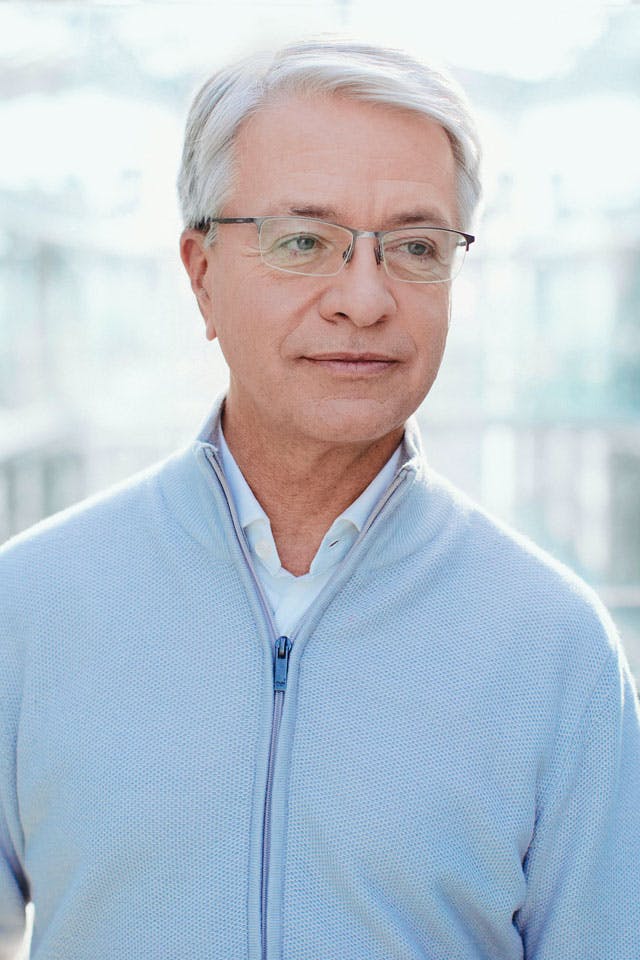The war in Ukraine, caused by the Russian aggression in February 2022, took all observers by surprise. More recently, at the beginning of the year, a violent earthquake struck southern Turkey and north-western Syria. We think of our colleagues and their loved ones, who lost their lives or were injured by this earthquake, the largest in the region since 1999. To support local populations, we activated our Emergency & Development Fund, mobilising half a million euros in 72 hours. This succession of crises shows us, as if it were still necessary, that unforeseen events can occur at any time and can significantly upset the geopolitical and economic balance.
From an economic standpoint, in the second half of 2023, we should reach some sort of plateau in the rise in interest rates and, even if the return to normal takes time, it will pave the way for disinflation in the eurozone during 2024. A marked recovery in economies is expected to follow by the end of 2024, or early 2025. Despite this context — which is more difficult than anticipated when we designed our strategic plan — and thanks to the mobilisation of its teams and the confidence of its customers, BNP Paribas has all the assets necessary to continue its growth, with a long-term perspective and in a controlled manner to support its customers and the entire economy in the move towards a more sustainable model.


“We cease all financing dedicated to the development of new oil and gas exploration-production activities.”
Concerning the S pillar — Sustainability — of your plan, BNP Paribas recently embarked on a new phase of strong acceleration in favour of the ecological transition. More specifically, what is the course you have set?
J.-L. B.→ Faced with the emergency related to climate change, the expectations and demands are legitimately immense, and the challenge facing public authorities, companies and citizens concerns both the scale and the pace of transition. To meet this challenge, we are committed to a trajectory that should lead us to finance a carbon-neutral economy by 2050, and we are committed to accelerating the process of reducing our financing of fossil energy production as soon as possible.
The transition to low carbon is clearly subject to a time frame that takes into account industrial realities. However, to make it as fast and as sustainable as possible, BNP Paribas has made clear and ambitious commitments. As a result of the new phase triggered in early 2023, between 2016 and 2030 — or less than 15 years — we will have completed 80% of the transition of our financing activities to low-carbon energy production. Renewable energies will then represent four-fifths of our energy sector financing.
In 2022, we focused mainly on financing low-carbon energy production, which represented 60% of our energy loan portfolio at the end of December. Our oil exit trajectory is already well underway. The Group has not granted any dedicated financing for new oil field development projects since 2016. Since May 2023, we cease all financing dedicated to the development of new oil and gas exploration-production activities.
By 2030, BNP Paribas will have reduced financing oil exploration-production by 80% — with less than €1bn in remaining exposure — and its gas exploration-production financing by 30%, and it will have achieved its complete phase-out of thermal coal in European Union and OECD countries. Our commitments, in this area as well as in that of unconventional hydrocarbons, have been scrupulously respected. The same will apply to our commitments in the oil and gas sector.
While we are driving the transition of our energy portfolio, we must not forget that it is by supporting the low-carbon transition of our customers in all sectors that we have the greatest impact. The fact that BNP Paribas ranked #1 in green bonds at the end of the year is a good bellwether for our ability to be, on a large scale, an accelerator of the ecological transition for all our customers.
Our progress and performance in sustainable finance is also recognised by several independent organisations. With an overall rating of 63%, we are, for example, the best-rated bank in the world by the British NGO ShareAction, which also designates BNP Paribas as a European leader in the fight against climate change and the protection of biodiversity. We see this sort of recognition as an incentive to do even better, alongside our customers.
I am convinced that the transition, due to the profound change of model that it implies, can only be carried out collectively, with all players in society. It requires massive and rapid mobilisation but must be fair and socially acceptable. This search for an optimal and sustainable balance will be at the heart of the challenges of the next decade.
Interview conducted on 15 March 2023 and updated on 11 May 2023.
